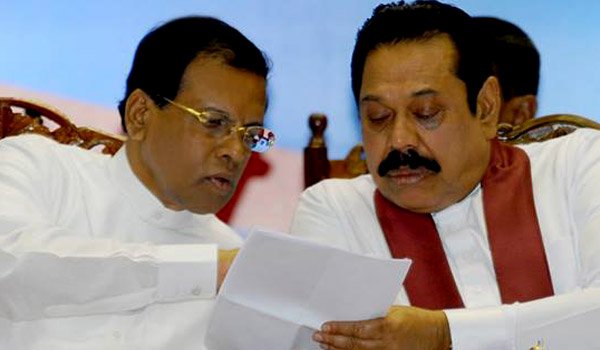But an important side story is that elections are becoming a routine affair in Sri Lanka. Earlier, they were held against the backdrop of assassinations, murder bids, forced disappearances and bitter ethnic conflict. Now, with a more independent election commission, there is greater participation. "The political climate is freer, fairer. Major incidents of violence are fewer and the police have arrested hundreds of people (as a preventive measure). The commission has shown it is very much in charge and even warned against the President playing a political role," says Paikiasothy Saravanamuttu of the Colombo-based Centre for Monitoring Election Violence.
Many do point to the rather lucklustre campaign, despite a more relaxed atmosphere, and say that could be because of a lack of strong issues. In the last elections, there was one overarching question: Whether Rajapaksa should remain President or not. "Voters everywhere are confused. The Ranil Wickremesinghe-led UNP hasn't really used the mandate it got and forced an agenda for deep-rooted reforms. The President belongs to Rajapaksa's party but has made his opposition to him public. In Tamil areas, TNA hasn't delivered on many issues and rivals have jumped in," says Ahilan Kadirgamar, political analyst.
After coming to power, President Maithripala Sirisena was able to push through several Constitutional changes that curtailed his own powers, while setting in motion correctives to guard against abuse of power, which was rampant during Rajapaksa's regime. Sirisena has also been vocal in voicing his misgivings about Rajapaksa during the campaign. On the eve of polls, he sacked key functionaries of his Sri Lanka Freedom Party (SLFP), in what is likely an attempt to influence candidates who will make it to Parliament on the national list.
But Rajapaksa is the dominant force in the SLFP and he has tried to make Sirisena fall in line, with some success in the past. He has not been weighed down by allegations of massive corruption.
Meanwhile, in a subtle demonstration of India's position, the Indian high commissioner on Independence Day, two days before the Lankan polls, alluded to the improvement in relations as a result of Sirisena and Modi taking charge. "The domestic developments in Sri Lanka and India have led to a revitalisation of the relations between both countries," Y K Sinha said.
(timesofindia.indiatimes.com)






